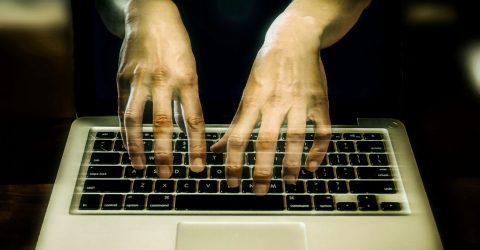Spy tech is going mainstream – but is it legal?

When we think of spy gadgets we naturally think of secret agents, private-eyes and law enforcement. We think James Bond, Jason Bourne or even Johnny English.
In contrast to this, software designed explicitly for ‘spying’ has effectively hit the mainstream, with everyday citizens and businesses now able to get their hands on some pretty sophisticated surveillance software. Delivery services may use location and time tracking apps to keep tabs on their drivers, and home-owners can install cloud-linked cameras to watch over their property.
MoreWhat are Email tracking pixels and why do companies use them?
Those in the business argue that having spy equipment in today’s world is absolutely integral in ensuring security at your home or workplace. It improves the safety of individuals and the success of a company. It can work as a deterrent against crime and can be used to collect evidence.
Unfortunately the fundamentally covert nature which is characteristic of such technology also opens us up to being surveilled without our knowledge, and potentially with malicious intent.
But is it legal?
At present anyone who wants to use spying technology must only use it for legitimate security reasons. Government bodies must comply with RIPA (Regulation of Investigatory Powers Act) but in the private sector the rules are more lenient.
Generally, using such equipment you are expected to respect the reasonable privacy of any individual that is involved and abide by statutory regulations on data protection. Any failure to do so can lead to prosecution.
Tracking
For instance, using apps to track an individual. In the case of a parent, tracking their children could be considered a legitimate use to ensure child safety, whereas tracking a partner would likely be considered a breach of privacy and can contravene their human rights.
While using spyware to keep track of friends and family is not automatically illegal, doing so without their knowledge or consent does violate a range of cyber privacy legislation, such as the UK’s Computer Misuse Act.
Listening
With listening devices, it is legal to install them in your home or workplace but putting it in someone’s else’s home or car or in a private area like a bathroom is illegal.
Tapping phones can be a legal minefield. While it is legal for you to record your own phone conversations without letting the other person know, you cannot share the information with a third party.
It is illegal to record other people’s phone calls, likewise, making the content of another person’s phone call available to someone not involved is illegal.
Cameras
Spy cameras have the most stringent legal restrictions among. For instance, it is illegal to install cameras in areas deemed private such as bathrooms or changing rooms. Any footage from the camera can only be kept for a reasonable length of time and you are not permitted to release footage to third parties even if there is a legal necessity.
It’s also interesting to note that the ubiquitous CCTV is not allowed to record audio of conversations between members of the public and all CCTV cameras must be registered with the Information Commissioner’s Office.
Spyware
The term ‘spyware’ usually refers specifically to software, malicious or otherwise, which is installed on a device usually without the owner’s knowledge or consent. Along with other malware, this represents a huge threat to privacy and security.
While some spyware such as cookies and adware may be used for relatively innocent means such as delivering adverts that are more relevant to our interests, others can be far more invasive. At its worst, spyware can be used to harvest account information and passwords, record private online activity and much more.
Counter surveillance
So, with the growth of spying equipment it is inevitable there will be the same growth in counter-surveillance equipment. Anyone is legally entitled to use such equipment if they think that they are being watched, filmed, recorded or monitored.
But while spying software and equipment have become highly sophisticated there are always some tell-tale signs you may be being spied upon.
Some of the most obvious signs that your phone or tablet might be infected are linked to the device experiencing a dramatic increase in usage, including reduced battery life or unexpected spikes in data usage and internet activity.
Likewise, if you find the device is unusually warm to the touch then a spyware infestation could be the likely culprit, especially if it hasn’t been in use or left plugged into a charger.
NewsShould your kids be using TikTok?
Less obvious indications of spyware might easily be passed off as faults with other features of a device (eg autocorrect software may stop working), and some may go entirely unnoticed by less observant users, such as unexplained phone calls and messages.
Signs of infection on your home computer can also vary widely. The most common issues are unexplained pop-ups and windows opening and closing on their own, as well as the system slowing down after extended use, or an increase in the appearance of adverts while browsing online.
It is worth investing in a good antivirus for all of your devices. While modern PCs are generally good at busting many viruses on their own, paid antivirus software can be more proactive in blocking attacks. Antiviruses are also available for Android, iOS and Mac.
Image: Blogtrepreneur






